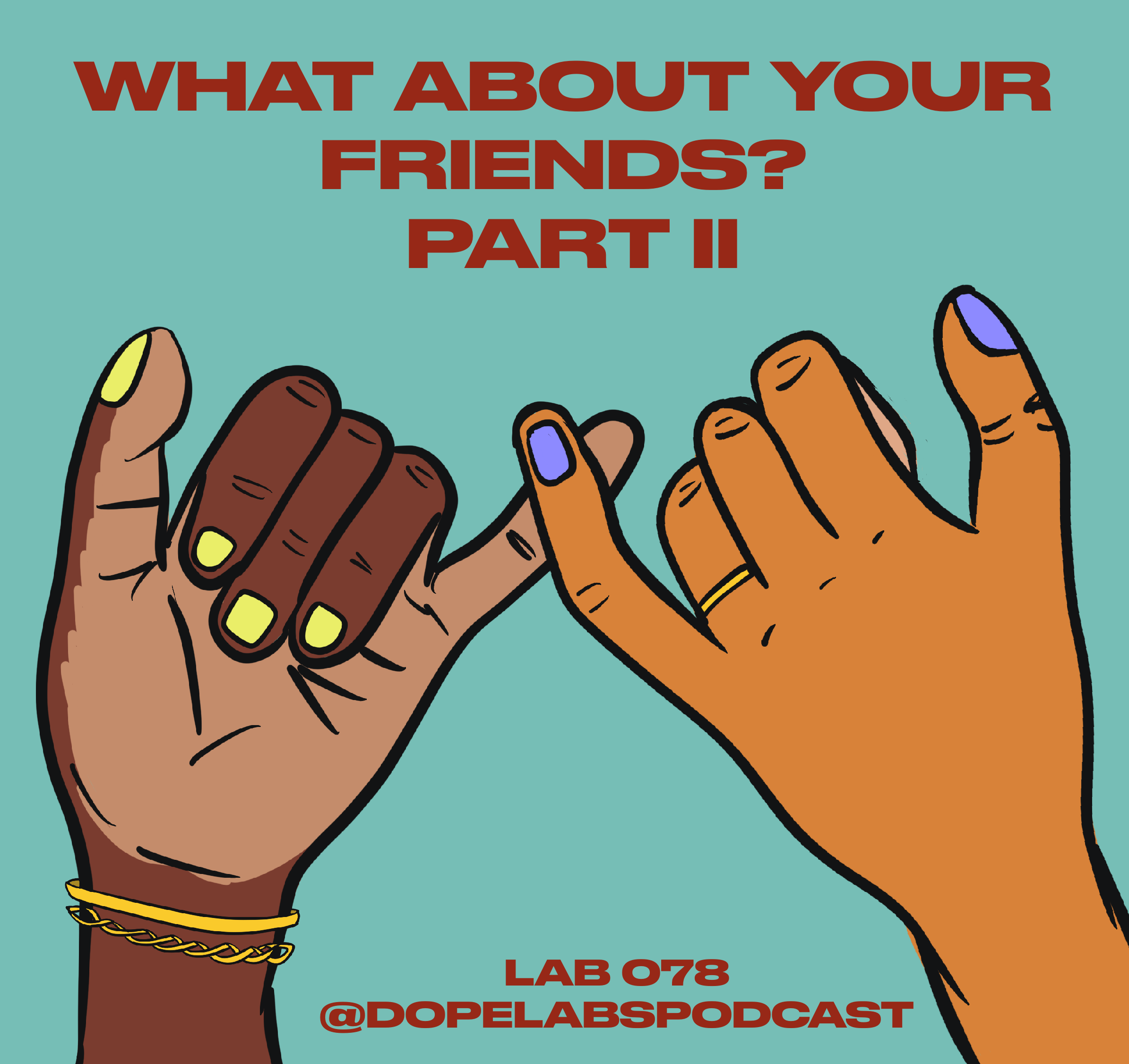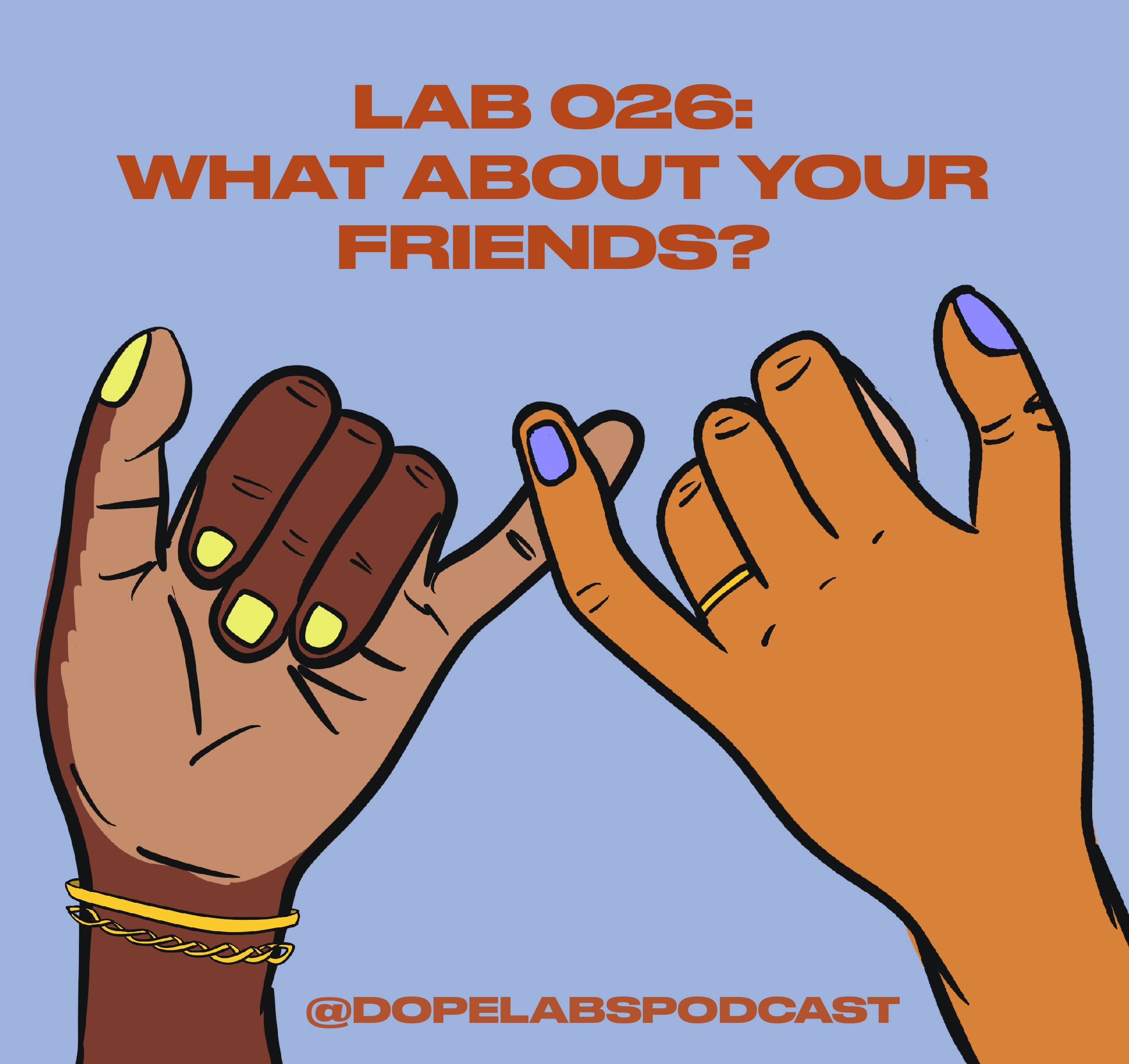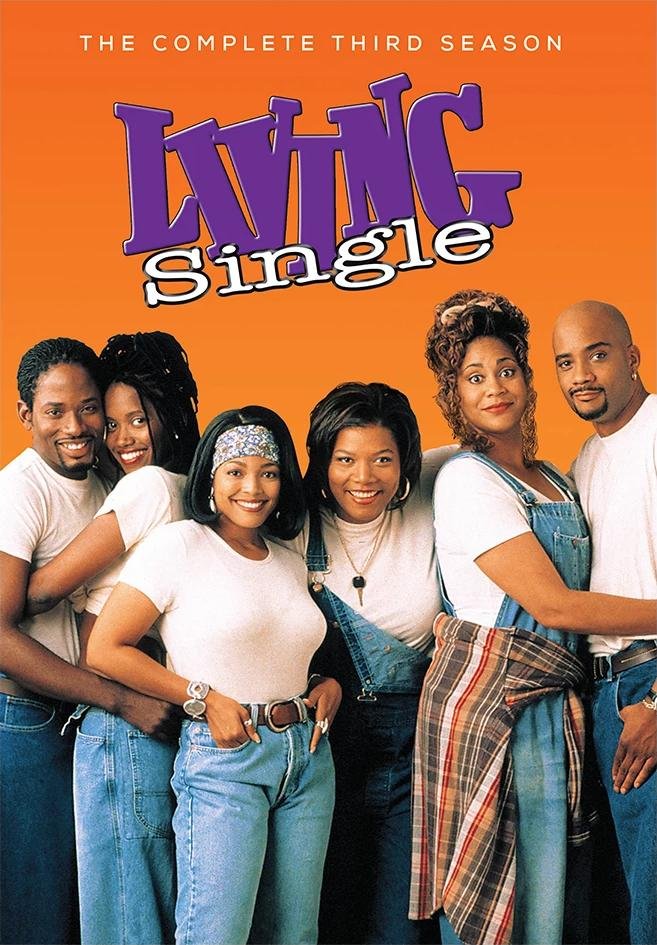What About Your Friends Part II: Attachment Theory - Lab 078



About the Episode
Now if you’ve been listening to Dope Labs for at least one episode, then you know that we really value friendship! This isn’t our first exploration of friendship, we even have an earlier episode (What About Your Friends - Lab 026) about it with Dr. Marisa G. Franco and besties & authors of Big Friendship, Aminatou Sow & Anne Friedman.
Why is friendship important?
Friendship can stabilize and ground us, and even help regulate our stress hormones
Healthy friendships prime us for healthier relationships in other areas of life too
“We know from the science that just like we need food, we need water, we need air, we need social connection to be functioning at our best, which is why research actually finds that the impact of loneliness is akin to smoking 15 cigarettes a day. It's actually linked to how long you live, your level of connection, even more so than your diet and the amount that you exercise.” Dr. Marisa G. Franco [00:04:40]
What is the difference between romantic and platonic relationships?
Historically, romance has been part of normal friendship, even more so than it was a part of marriage. Marriage was a practical/ financial endeavor and friendship was where you got your deep connections.
Through industrialization and the theories of Dr. Freud, stigmas developed that characterized friendship as feminine
Zakiya: [00:12:11] “Men felt to perform heterosexuality, that they had to distance themselves from friendship, which felt feminine to them. And it becomes stigmatized along with a lot of behaviors that were previously considered platonic.”
What are the different attachment styles and how do they affect our friendships?
Attachment theory is formed from your early relationships with your parents and creates “a template for how people will respond to you throughout life.” -Dr. Marisa G Franco [00:16:01]
Anxious, Avoidant, and Secure attachment types
Dr. Franco’s analogy of the algorithm:
[00:20:50] “Experimenting is really important for changing our attachment styles because attachment style is like an algorithm. If A then B: if I'm vulnerable, people will reject me. If I reach out, people won't want to hear from me. And when we experiment and we do the thing that makes us scared and there's a different outcome, and we savor that outcome, we internalize that outcome, we feel the impact in our bodies, that's the work of changing our internal algorithm.”
How to handle conflict in friendship?
Open, empathetic conflict can actually deepen relationships and contribute to more intimacy
Navigate conflict with authenticity to experience a deeper level of intimacy
Virginia Goldner’s theory of Flaccid Safety vs. Dynamic Safety
Dr. Marisa G. Franco: [00:29:43] “Flaccid safety: We just pretend the problems aren't happening and we are comforted by our game of pretend. Dynamic safety: We rupture, we repair. We know that when problems come up, we can repair and we experience a deeper level of intimacy.”
Dr. Franco’s advice for building friendship with people who have different privileges and life experiences than you: Vet, vulnerability, and voice.
Issa and Molly, best friends on the hit show Insecure (HBO)
Additional Reading
Guest Expert
Dr. Marisa G. Franco, professor, speaker, psychologist and author of the book Platonic: How the Science of Attachment Can Help You Make and Keep Friends.


